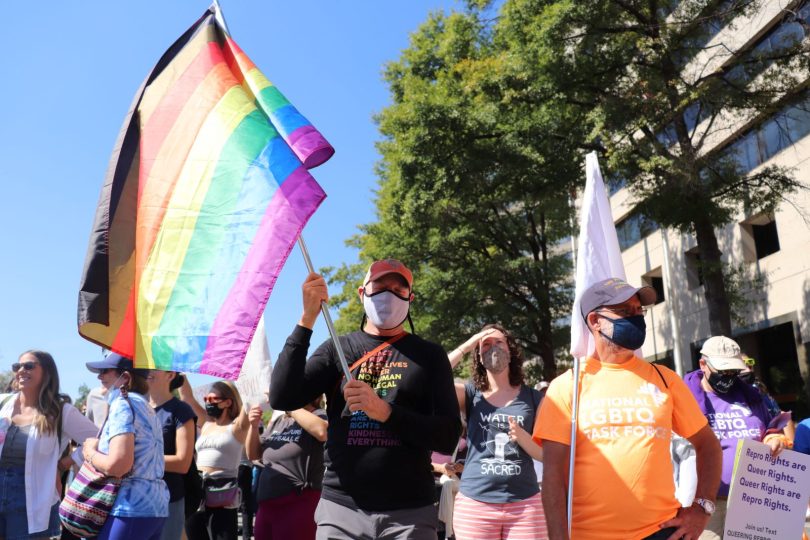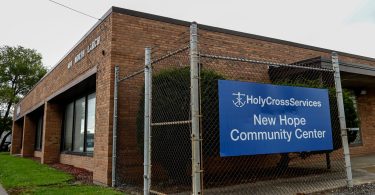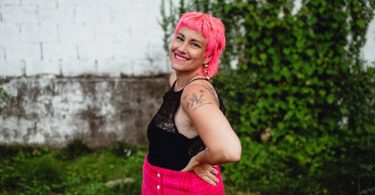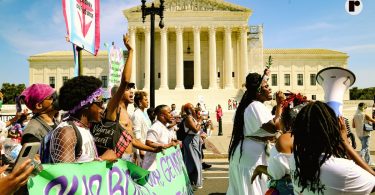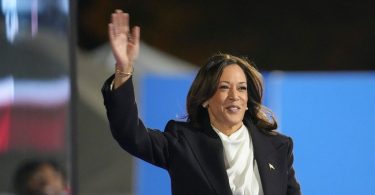On Thursday, September 12, the Pacific School of Religion in Berkeley, California hosted the first of five workshops called “Queering the 2024 Vote” through its Center for LGBTQ and Gender Studies in Religion. The school, founded in 1866 is affiliated with the United Church of Christ (UCC), perhaps America’s most progressive Protestant denomination.
The school’s website reports 69 Doctors of Ministry Students and 144 graduate students. Another database reports in 2022 there were 109 students, 27 full-time and 82 part-time. That database reports that in 2012 the school had 201 students, 89 full-time and 92 part-time. In 2022 it reported an endowment of $44 million.
According to the school, the “Queering the Vote” series seeks to empower LGBTQ individuals, allies, and communities to be voices and votes for positive change in our nation’s urgent need for justice, hope, love, and compassion.”
With the theme “Vote With Love,” the first workshop argued it is a Christian duty in an election season to support the LGBTQ community. The workshop was led by the Rev. Michael Neuroth, a UCC minister who is the Policy Advocate for International Issues in the UCC Justice and Witness Ministries’ office in Washington, DC.
The workshop cited 1 John 3:18, which urges the church to love with “actions and truth” rather than “words or speech.” Especially given polarization and rampant disinformation in the U.S., Neuroth argued that loving political action must be grounded in truth. But, as Pilate asked, what is truth? How is it determined? Is it based on scripture or are there other sources? Neuroth did not explain. He said civic engagement is the means for enacting commandments to love our neighbors. So, actively securing voting rights is the duty of a loving Christian citizen.
Once secured, citizens and especially Christians ought to vote with a spirit of love, Neuroth urged. He stressed toleration and acceptance for all of God’s children. While at least superficially admirable, the loving response, if rooted in Christian teaching, may not always be automatic affirmation.
The “Vote With Love” workshop, and the “Queering the Vote” series, which is a part of the larger “Our Faith Our Vote” campaign in the UCC, claimed to be non-partisan. They argue that they are fighting disenfranchisement and bolstering democracy. To achieve their goals, the UCC campaign presented three key components: voter registration, issue education, and voter empowerment.
Referencing the Great Commission, the workshop campaign encouraged listeners to extol voter registration in partnerships, just as Christ’s disciples went out in pairs to spread the Gospel. They specifically encouraged targeting “voters of color.” In attempting to love neighbors and protect their civic rights, the UCC campaign relies on identity politics. To counter polarization, they embrace one of its causes.
Additionally, the UCC campaign unashamedly exploits trust in churches to “educate” voters on current political issues. According to Neuroth, the movement is “leaning into the fact that churches are a trusted source of information.” Moreover, their efforts are claimed to be prophetic and nonpartisan. The UCC campaign conflates spiritual actions with spiritual formation.
For example, the workshop described special church services, such as the “Vote Faithfully Service,” which are tailored around certain scriptures and that stress voting with love. These services include special liturgies, suggested music, and other resources. Rather than inspired by God’s word and focused on worship, these services are tailored around temporal progressive political messages.
In addition to LGBTQ rights, the UCC provides “education” on gun safety, health care, racial justice, immigration, and even economic justice. The UCC offers progressive perspectives on all these issues, of course. Of course, Christianity broadly extols justice and dignity for all people in society. But the scriptures and church tradition do not offer detailed instruction about most contemporary political specifics. Most political decisions involve prudential judgment. And the institutional church should be reluctant to claim any special authority to speak to political specifics.
The Pacific School of Religion’s “Vote With Love” workshop was merely one event in the five part “Queering the Vote” series, within the UCC’s twenty year “Our Faith Our Vote” campaign. The UCC strives for admirable goals: acting with love, bolstering democracy, and publicizing the Christian duty of civic engagement. “Queering the Vote” examines the election through “LGBTQ perspectives on voting, faith, and advocacy.”
But why is a Christian denominational seminary extolling election perspectives through the lens of LGBTQ ideology and advocacy? Shouldn’t a Christian seminary examine public policy issues through the lens of scripture and historic Christian teaching?
And, distressingly, “Queering the Vote” portrays LGBTQ political advocacy as spiritual formation. The church’s chief vocation is not political advocacy, it is Gospel proclamation, including the message of salvation and transformation, along with ethical teaching about how we treat our fellow humans. Progressive denominations like the UCC, especially at the national level and in its seminaries, have largely discarded historic church teaching about these topics in favor of identity politics and political advocacy.
It’s no wonder that the UCC is nearly the fastest declining denomination in America. Perhaps the UCC and its seminaries should focus on making more Christians instead of focusing, ineffectively, on how to remake society through LGBTQ or other progressive ideologies.

